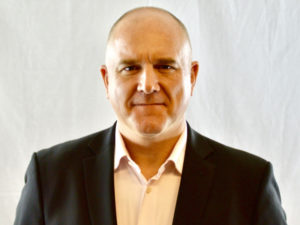Chris Mitchell, Vice President of the Middle East – Crane Worldwide Logistics, has been in the logistics industry for over 20 years and has long-standing experience in the Energy and Marine sectors globally. In a recent podcast ‘Coffee with Crane’, Chris shares his insight and experience with regards to the current state of the Middle East logistics outlook and how Crane’s logistics solutions in both contract logistics and freight forwarding are growing to support and solve clients’ challenges in countries such as the UAE, Saudi Arabia, and Qatar. We feature key points from the podcast interview below…
What are the key economic dynamics happening in the Middle East?

Like most regions, the planning right now focuses on how countries and economies in the Middle East can emerge from the COVID-19 pandemic. The economies have opened up and allowed businesses to restart and I think the people in the Middle East are very diverse yet united in resilience and resourcefulness to ensure a successful recovery.
A lot of the focus in the Middle East right now is on the transition from traditional hydrocarbon reserves to renewable and alternative energy sources. There are huge opportunities in the region around more sustainable energy sources.
What is happening in Saudi Arabia?
Saudi is a very interesting country and its well-established vision is around transitioning away from hydrocarbons. Saudi Arabia’s long-term Vision 2030 program is specifically focused on how to diversify the economy away from that. There are huge opportunities in Saudi Arabia and the diversification in the economy around different investments in line with the Vision 2030 program is creating a lot of excitement in the region.
Tell us more about Crane Worldwide’s operation in Qatar…
We opened our doors in Qatar in 2020 which may not have been everybody’s ideal time to open a new branch, but, there was a commercial imperative there to support a contract award with a major offshore drilling contractor. Crane Worldwide went ahead and opened up the branch in Qatar and the company was brave and committed enough to support our client. Naturally, circumstances were challenging but we succeeded. We are now set for future growth and expansion in Qatar. Qatar is a really vibrant market, there is a heavy investment in the natural gas market, where they want to continue with their position as a major gas exporter and there is a significant investment in that domain.
It’s not just about oil and gas, what is coming up in 2022 in Qatar?
The exciting date that we are looking forward to is the Football World Cup in Qatar (soccer). It is the first time an Islamic country has hosted this event and we are very excited to unlock some of the opportunities that the World Cup will bring. With logistics expertise in Qatar, we are available to support potential clients with our logistics network to support them in entering the market. The fact that Qatar attracted the World Cup and was successful in its bid to host the event demonstrates the level of commitment to being on the world stage.
Is the Oil and Gas sector rebounding in the Middle East?
The sentiment in the Middle East around oil and gas is with cautious optimism. Volumes appear to be recovering a little. Crane Worldwide sees a lot more requests around the renewable energy sector such as green hydrogen and we think that the Middle East is keen to be at the cutting edge of the energy transition.
That being said, we do think that the Middle East is going to see further investment in traditional oil and gas. As the renewable energy sector does continue to expand, there are signs of the traditional oil and gas market due to the phasing-in period of sustainable and renewable energy and it will not happen immediately in the Middle East economy. Drilling in a traditional sense will continue for a number of years.
Existing key production areas such as Saudi Arabia, Abu Dhabi, Iraq, Egypt, Qatar, and Oman, all of those areas where we have a presence and solid logistics experience, will still see further investment.
And Afghanistan? It was a key moment in history, what has been the impact from your perspective?
Evidently, there is still a lot of volatility as a result of the United States withdrawing from Afghanistan. There is a lot of uncertainty. The geopolitical balance in the region has always been sensitive and the dynamics are very finely balanced. The immediate consequences of evacuating personnel, refugees, and removing equipment from Afghanistan has had a lot of involvement from the logistics industry. There has been a sense of urgency and we have been involved through our government and defense sector with cargo charters, demobilization of equipment and that has been ongoing. The next steps are clearly in a state of flux because of the nature of the geopolitics in the region.
What is the future for Crane Worldwide in the Middle East?
Crane Worldwide sees tremendous opportunity in the Middle East. As mentioned, expanding our middle east footprint around the energy sector and being where our clients need us to be. Also, in our government and defense sector as we support local requirements in the region. The growing prosperity of the region in high-density populations such as Dubai, Saudi, and Egypt for example, will further support our growth in the FMCG and retail logistics opportunities in the area. There is a huge opportunity in terms of imports into the region as most retail goods are manufactured elsewhere and contract logistics opportunities to support with warehousing and value-added services.
As countries open up to more travel, there is an economic dividend in terms of more discretionary spending and travel and we are forecasting great economic growth in the future.
To listen to the full podcast interview, please click HERE
